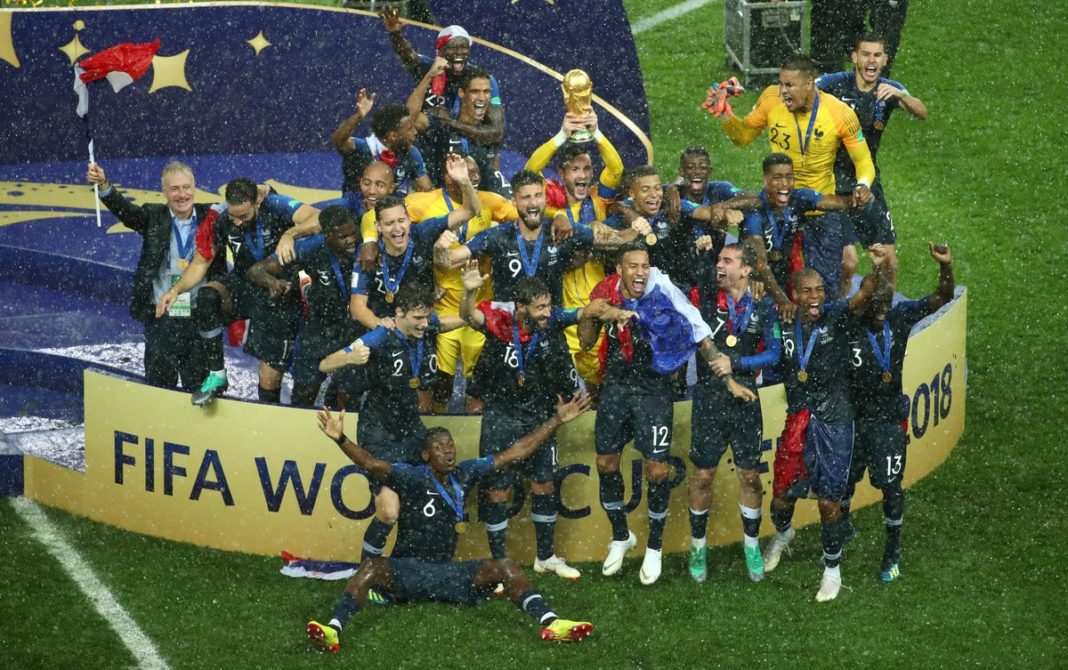After completion of a memorable 2018 World Cup in Russia, we take a look at some of the vital statistics and facts after France were crowned world champions for the second time.
Luka Modric won the adidas Golden Ball Award, while Kylian Mbappe took home the FIFA Young Player Award and Thibaut Courtois the Golden Glove.
Russia’s victory against Saudi Arabia meant that the host nation has never lost their opening match in any of the 21 editions of the FIFA World Cup (W16 D6 L0).
A total of 169 goals were scored, 2 less than the 171 goals scored in Brazil 2014 edition.
This was the first ever World Cup to see all competing teams score at least two goals.
There were nine winning goals scored in the 90th minute or later at the 2018 World Cup (excluding extra-time), more than at any other edition of the tournament.
With six goals, Harry Kane was the top scorer and became only the second English player to ever win the World Cup Golden Boot, after Gary Lineker in 1986.
Kane also scored the only hat-trick in the tournament, against Panama in the group stages.
29 penalties were awarded at the tournament, beating the record tally of 18 penalties recorded in 2002. 22 of those were scored.
Ten braces were scored at the tournament, less than the 14 scored at the 2014 edition.
There were 12 own goals scored at the 2018 World Cup, double the tally of the previous highest in a World Cup tournament; six in 1998.
There was just one goalless draw at the 2018 World Cup (France vs Denmark), the fewest at any World Cup tournament since 1954, when there were none.
Belgium had the strongest attack, having scored 16 goals in seven matches, four ahead of England who have scored 12 goals.
Belgium also produced ten different scorers at this year’s World Cup. Only Italy in 2006 is the last team to produce the same number of scorers at a single tournament.
Olivier Giroud didn’t attempt a single shot on target in 546 minutes at this World Cup for France.
Kylian Mbappé (19yrs) became the 2nd youngest player to score in a FIFA World Cup final, after Pelé (17yrs) in 1958 for Brazil.
Didier Deschamps became the third person to win the World Cup as a player and as manager after Mario Zagallo and Franz Beckenbauer.
There were 219 yellow cards and 4 red cards, with Croatia having collected (15) the most yellow cards over the seven games.
Croatia’s position in the FIFA world rankings, was the lowest-ranked nation ever to reach a World Cup final.




